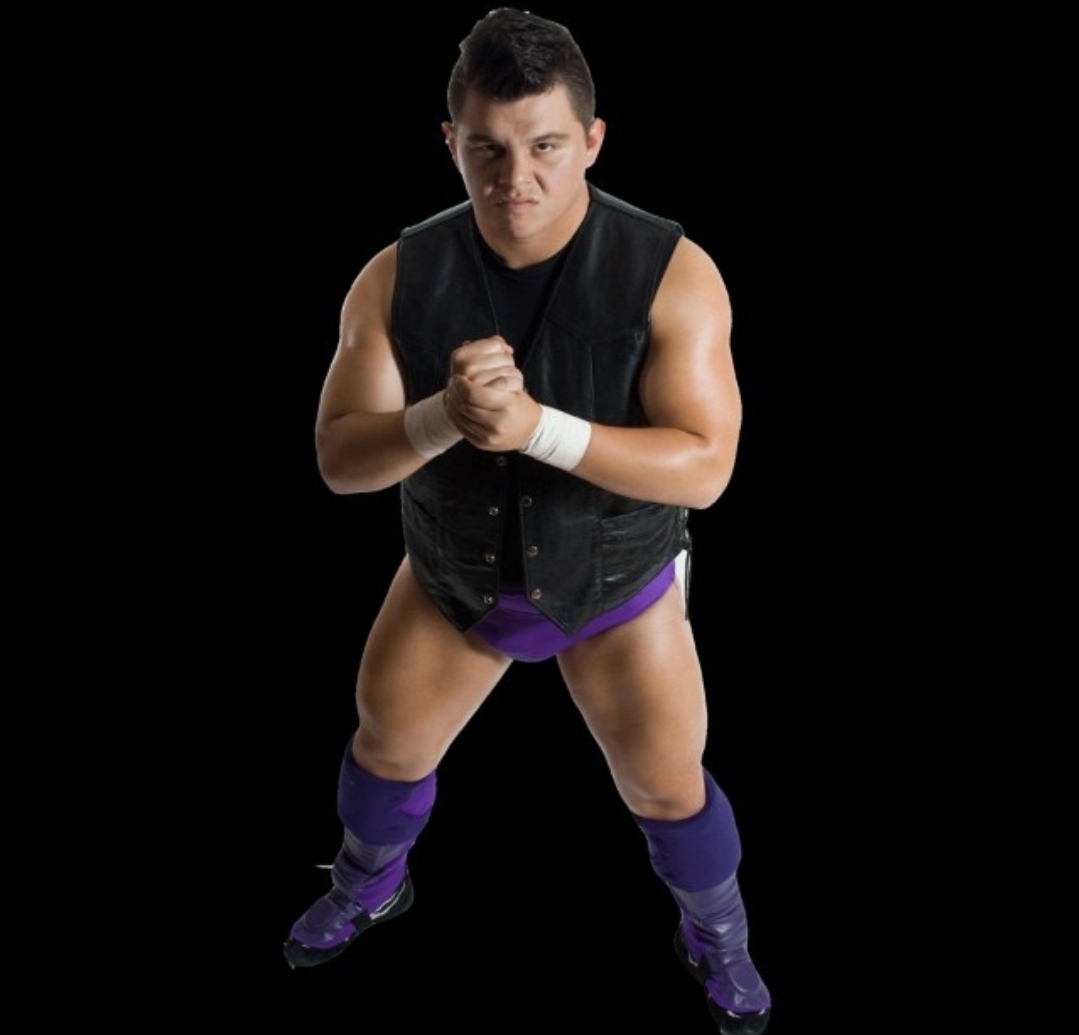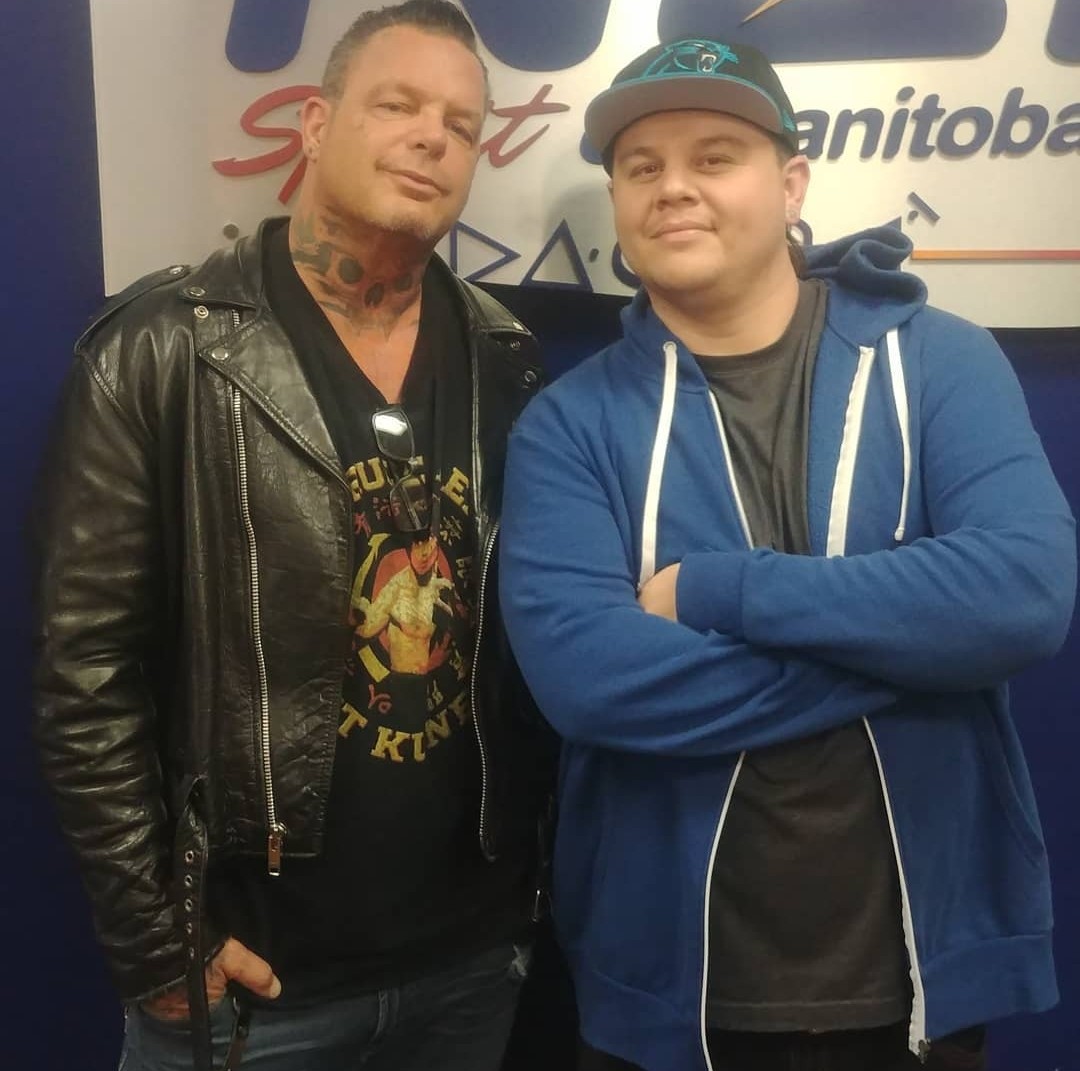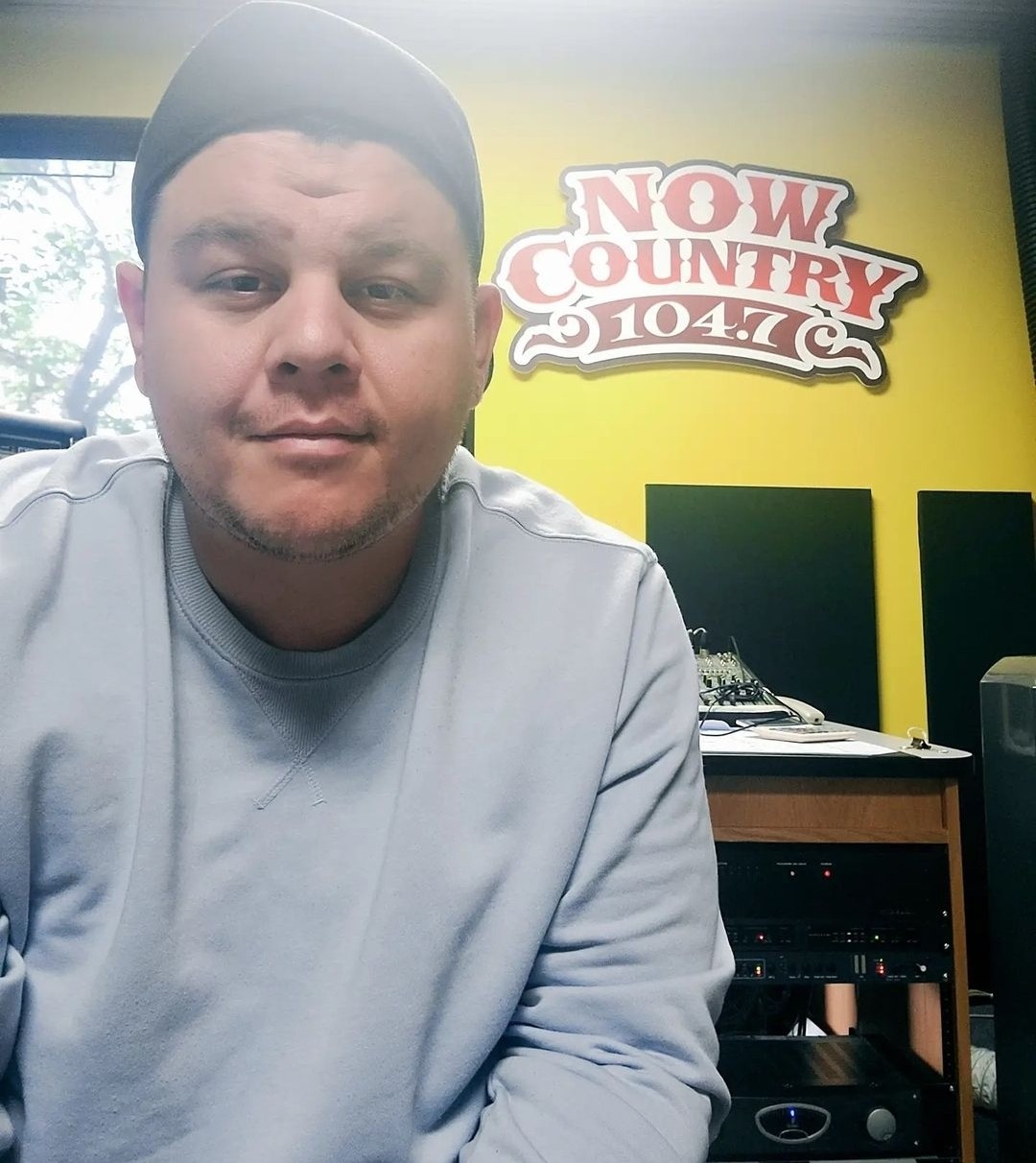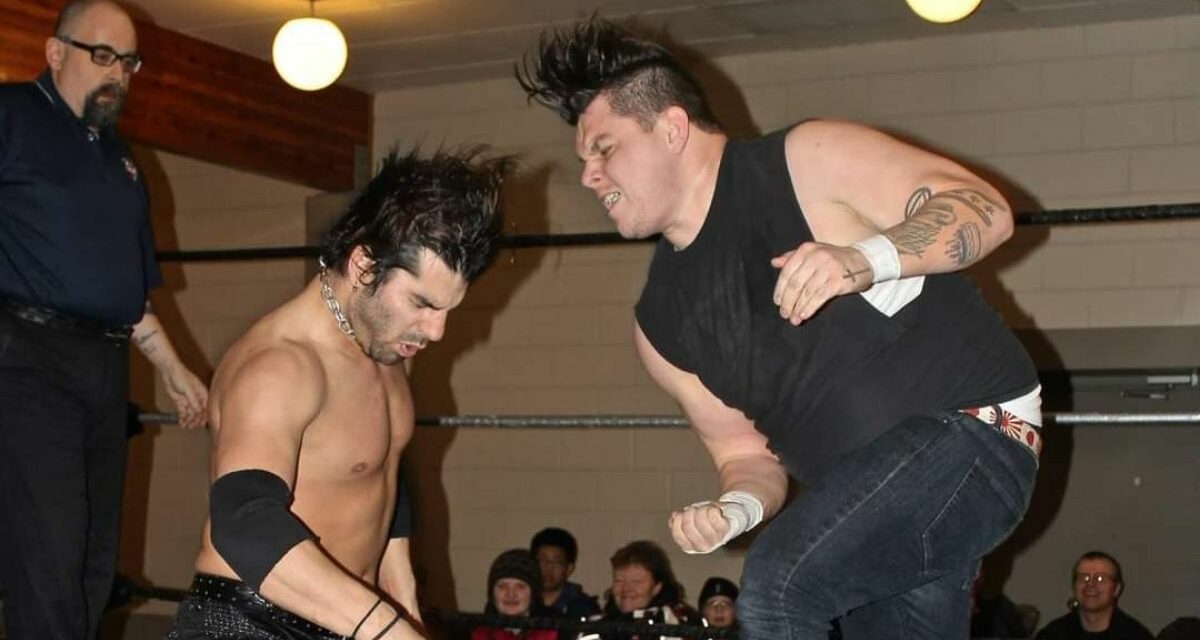With a growing presence in the media world, including a morning talk show and the creation and deal offer for his new Indigenous-based TV series, Stefan Richard has found himself with an urge to get back in the ring — starting tonight! — where he was known as Stefan Epic. After all, his current successes wouldn’t have been possible without pro wrestling — though there were some very dark times along the way.
In a wide-ranging interview with SlamWrestling.net, Richard reminisced and looked forward.
His wrestling fandom started with his maternal grandfather Raymond, who was a big fan. “He used to watch it around the house, and I would watch along with him,” said Richard, who is now 34.
It eventually grew into Richard watching wrestling on his own, and then attending wrestling shows in Winnipeg. At age 13 in 2001, he began his path to training.
His trainer, “Hot Shot” Johnny Devine, saw something in the teenager. “Stefan has that whole combination of intelligence and dedication, which is hard to find sometimes,” said Devine. “You find one or the other, but not both. Even at a young age, I could tell he was very ambitious to learning and perfecting his craft. Be something different than the local market.”
When Richard reached the mighty age of 15, he started wrestling on shows, for pay as “The Epic” Don Douglas, debuting December 4, 2002. He still put in the time, and trained in the ring 12-15 hours a week.
Transcona Collegiate was Richard’s high school, and he had someone to look up to — Tyson Smith, better known as Kenny Omega, who was a few years ahead of him. Richard saw how “invested” Omega was when it came to wrestling, committed to his craft day in and day out.
Coming into his own, the 6-foot, 220-pounds Richard switched his ring name to Stefan Epic. “I wanted to add a handle on it like, The Rock or Stone Cold. The cleverest one I could come up with was ‘The Epic,'” he chuckled. “Then eventually, it got further along. I didn’t like that Douglas name anymore.”

A Stefan Epic promotional photo from 2009.
Raised in Winnipeg and member of the Sagkeeng First Nation, a Anishinaabe (Ojibwe) community in Manitoba, he also has ties to the reserve where his father and sisters still live, an hour’s drive from The Peg.
That first trip to the Winnipeg Arena to watch the WWF matches for the first time still stands out for Richard. He can still picture putting on his snow pants and boots, to head out excitedly with Grandfather Raymond. Richard might have been four years old. At the Arena, Richard continually asked his grandfather who were the feature wrestlers coming that day. He was hoping for Demolition, the famed tag team. “It’s the first real memory of wrestling I have,” he recounted, although, he doesn’t remember everything.
Growing up without a father, Grandfather Raymond meant a lot to Richard. When he was around 18, Richard’s father came into his life, and they formed a relationship. It was an entry point into his heritage Sagkeeng First Nation, which came from his father. Richard dove into the culture and learned as much as he could.
Naturally, it became a new part of his wrestling character too; Devine thinks that Richard’s embracement of his culture made his trainee stand out. Richard would wear chokers, bead work.
Then there was the Fabulous Creebirds, a clever play on the influential Fabulous Freebirds tag team from the 1980s.
The team ran from 2006-07, then 2009-11, as Richard teamed with another First Nations wrestler, the 6-foot-1, 285-pound Kevy Chevy (Kevin Fontaine).
Chevy was part of another tag team called The Big Sexy Beast with AJ Sanchez when he first met Richard at the West Broadway Community Center where he was wrestling for Premier Championship Wrestling (PCW). Richard told Chevy that he was thinking about switching to the competing River City Wrestling. Given how young and talented Stefan was, Chevy said he was a bit “cocky and full of himself,” but Chevy also recognized that Stefan Epic was a force to be reckoned with, and encouraged the jump.
After leaving PCW, Chevy didn’t really have much to do and neither did Richard, so Stefan talked to the promoters of PCW to bring Chevy back for a tag team, even though Chevy was described as a “loose cannon” by some in the industry. Stefan knew that they would work well in the ring together once they had some time together.
Over the years, there were other members of the Fabulous Creebirds such as Billy Blaze, Wavell Starr and Chad Blind.
“First Nations wrestlers are very rare. Each one of them becomes a wonderous role model to the rest of the people of First Nations,” Devine said. “[Stefan’s] goal was to be a good role model.”
Real life issues found their way into the wrestling storylines. Epic, Chevy and other First Nations wrestlers were mad at the less than humane treatment their people were receiving in Canada, and they incorporated it into their promos.
“It got a different reaction than a lot of the other wrestlers because we were touching on social things like racism, classism and all that stuff in a subtle way,” Richard explained. “During promos, we would mention those things to the camera.”

Vampiro with Stefan Richard after an interview on NCI-FM, in October 2019.
The Fabulous Creebirds (Chevy and Richard) both said that one of their greatest matches came in 2009 against The Briscoe Brothers, who currently are the Ring of Honor World tag team champions. Richard and Chevy also wrestled Assisted Suicide in PCW, which was an “awesome match” according to Chevy, and Chevy’s fondest wrestling memory is when he and Richard wrestled Ace Rivera and Dusty Lamborghini in High Impact Wrestling. “That’s the one that sticks out for me. I really liked the Briscoe Brothers match too, but I really liked that match between Dusty Lamborghini and Ace Rivera vs. The Fabulous Creebirds,” Kevy said. He went on to describe the backflips and finisher moves they endured during this fight as one of his favorite Creebird moments.
Up until calling it quits in 2015, Epic worked for a variety of promotions, including Canada Wrestling Elite, High Impact, Monster Pro Wrestling, Power Zone in Alberta, and even Big Japan Pro Wrestling.
That trip to Japan, however, was the start of the end of his career. In 2011, overdosed on his way there, and, while he came through and even competed, it was a huge sign that he couldn’t continue.
Richard was addicted to opioids.
“People don’t pretend to be depressed, people pretend to be happy,” he confessed, sharing some of the issues that contributed to his problems.
There was the trauma he felt when his father abandoned him numerous times, as well as the missing parts of his heritage, an identity issue.
Wrestling wasn’t the simplest of professions either. “Wrestling is a very political business,” Richard said. There’s teasing in the locker room or backstage, the “he said what?” drama, plus the stress on a young marriage.
The physical toll on the body is big, noted Richard’s trainer. “You can’t fake gravity,” said Devine. “Falling takes its toll, and Stefan is a perfect example of a bright star in the business being taken away simply due to a bad fall or having severe back issues.”
Actually, “severe back issues” wasn’t the worst of it. Richard actually broke his neck catching someone coming down off the top rope. That was the end.
Wrestling fell by the wayside.
“I was addicted to drugs, and I was without a job, without work, without anything really,” recalled Richard. “I didn’t have anything to come back to. The only thing I had hoped for was somehow tying something into wrestling. And the one thing I was really good at with wrestling was doing stuff on the microphone, talking to the camera.”
During those dark times, Chevy did try to reach out to Richard. They had had their own fights, including a falling out at Richard’s wedding, resulting in them not speaking for a year or two. “Thank God, he pulled himself out of it [drugs],” Chevy said. “It’s a slippery slope when you do those kinds of drugs and stuff. Some people don’t come back from that. I didn’t want him to not wake up one day. I’m glad he came back and persevered.”
Richard entered rehab in Addictions Foundation of Manitoba in May 2013, and upon competition of his stay, he got a job at a night club. “It’s not a great place if you’re trying to get clean off dugs if you’re working at a night club,” he remarked. Alas, it was the only plan he had at the time. Working the PA system at the club, Richard was complimented by a regular patron, “Have you ever thought of doing radio?”
He had, and knew how to use his words to entertain the audience from wrestling, so radio was just a different medium.
After completing a nine-month broadcasting program at Graduating Herzing College in 2015, Richard started looking around for work in his new field. It took a couple of years, and, in 2018, finally found full-time work. Like many people, it took a break to make it happen, and that was when he filled in for someone at NCI (Native Communications Incorporated) in Winnipeg. As well, Richard does podcasting on his own.
Stefan Richard Mornings airs on Winnipeg’s NOW COUNTRY 104.7 from 6 -10 a.m., where he talks about current events and topics like sports, sometimes news, social issues while enticing listeners with humor.

Stefan Richard at the NOW COUNTRY 104.7 station.
It can’t all be fun, though. The chilling discovery of unmarked graves at residential schools across Canada has been a difficult but necessary topic to discuss. Richard’s paternal grandparent, Jules, as well as his own father attended Residential schools. He took those stories and made the suffering known to the public.
“I was very lucky, in a sense, the way that things worked out. The path that everything went along,” Stefan said.
His friends from wrestling are pleased at how Richard has turned his life around. His parents were worried and concerned about him during that spiral period.
Devine sees someone who overcame the “hurdles” he encountered in life, no matter what. He never gave up.
“He’s doing really well for himself and their baby,” said Chevy. “It’s looking very awesome for him right now.”
The itch to wrestle is still there, said Richard, and he gave in. Tonight, Thursday, April 21, he’s back in the ring for Timebomb Pro Wrestling, in Fargo, North Dakota, facing Shane Black, and he’ll be wrestling closer to home on May 26, for 3D Pro Wrestling in Winnipeg, facing Robby Royce.
Down the road, he’s thought about having a reunion with Kevy Chevy (and Chevy is all for it) and others.
But there is so much else to do!
Richard has lined up a TV show that he will host and co-write; it’s a comedy on Indigenous language where it focuses on Richard learning different languages from multiple elders across the country while bringing “humorous light” to the show. There’s been talk of a book too.
It’ll air on APTN Lumi, a streaming site for First Nations storytelling in the fall. The name of TV show cannot be mentioned as of yet due to legal reasons, but it’s an Indigenous Language Comedy Series.
The key to right now is doing his morning talk show, he prefers to keep his options open for new things to come. “I always encourage people to ‘really go for it.'”
TOP PHOTO: Stefan Epic throwing a punch at Jimmy Jacobs.
RELATED LINKS
- Ever Sick! podcast with Stefan Richard
- Stefan Epic socials: Instagram * Facebook
- Stefan Epic on ProWrestlingTees
- CBC News article about Stefan Richard
- Top 10 facts about Stefan Richard
- SlamWrestling.net’s Indigenous Peoples story archives

